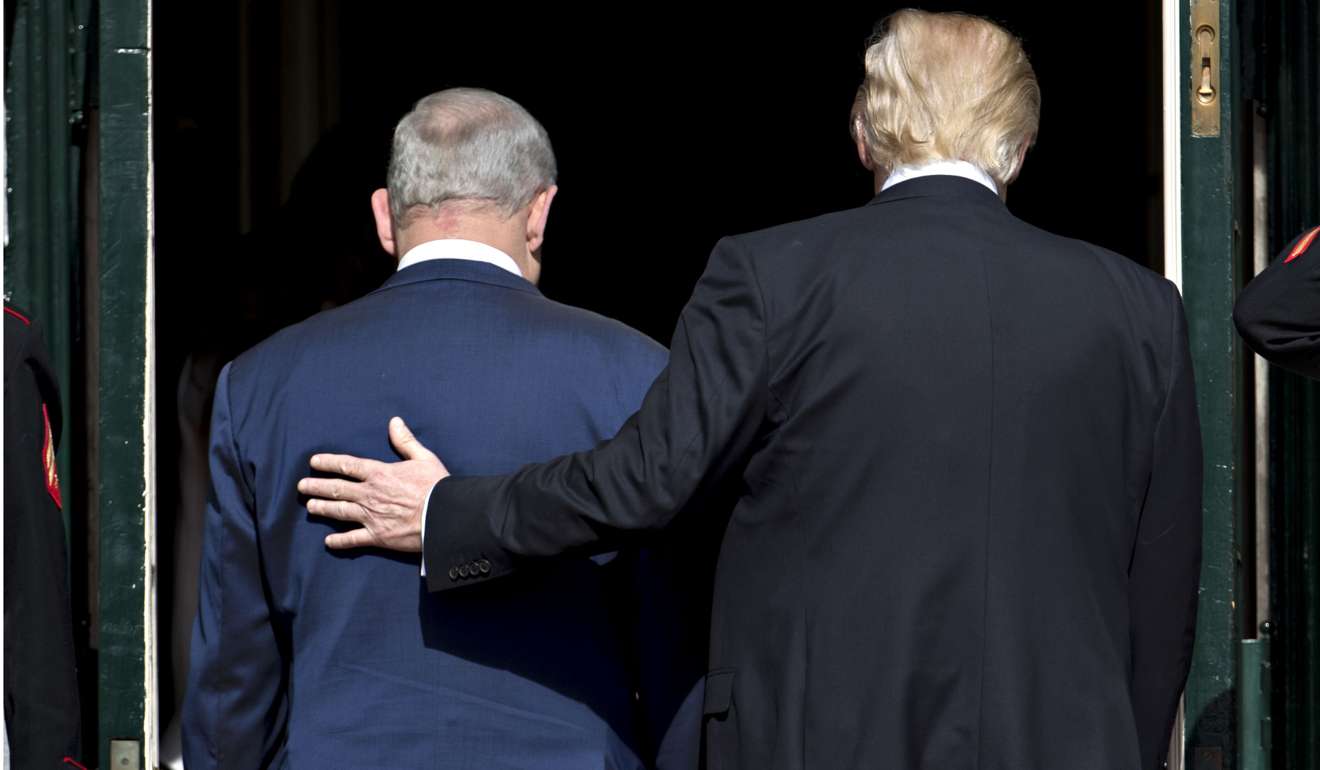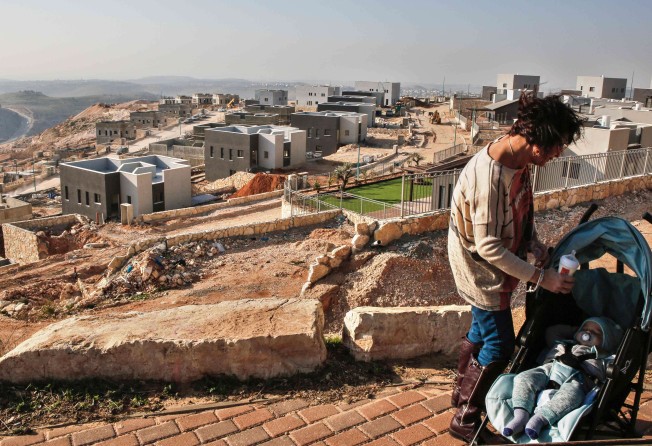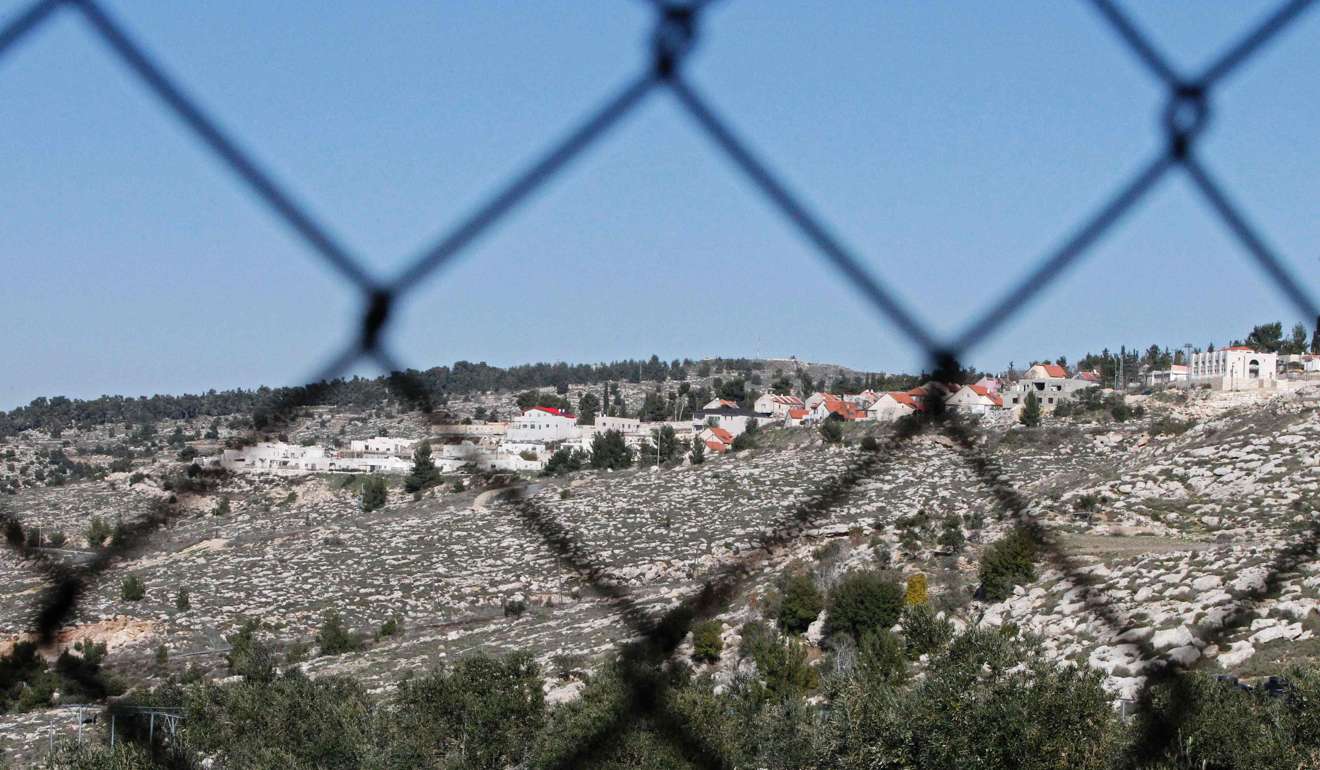
Can Trump’s words on a one-state solution to the Israeli-Palestinian conflict ever become policy?
Hagai M. Segal says the US president’s remarks that he is open to the controversial one-state solution to the long-standing Middle East conflict have alarmed many, but it’s unlikely he has the worst-case scenarios in mind

The Trump administration’s announcement that a “two-state solution” to the Israeli-Palestinian conflict is no longer the only option under consideration has caused both interest and alarm. For decades, under both Democrat and Republican presidents, the two-state solution has been the default endgame option: Israel living alongside, and at peace with, a fully independent Palestine.
Yet Donald Trump, in a press conference with the visiting Israeli prime minister, suggested a dramatic change of direction, saying,“I’m looking at two state and one state and I like the one that both parties like. I’m very happy with the one that both parties like.”
What might Trump have in mind? What alternative could be agreeable to both sides? In his headline-grabbing sentence, we have some important clues.

Trump used the term “one state”, yet also twice asserted that he was happy with any option that “both sides like”. A “one-state” approach is a controversial concept that rings alarm bells on both sides of the Israeli-Palestinian divide. When used by Palestinians, Israelis hear a desire to create a single state between the Mediterranean and the Jordan River where Jews will be a minority and Israel will thus suffer “death by demographics”. When used by Israelis, Palestinians hear a policy to annex the West Bank and impose permanent control over its Palestinian residents.
The term is thus an “us or them” approach to the conflict, rather than an “us and them” concept that all regional peace efforts have been based on.
It is language therefore actively avoided by past US presidents. Indeed, in his last public address as Barack Obama’s secretary of state, John Kerry warned Israel against considering the notion: “If the choice is one state, Israel can either be Jewish or democratic – it cannot be both – and it won’t ever really be at peace.”

Trump celebrates his rejection of existing approaches to global political issues, and repeatedly stresses his pro-Israel credentials. Naturally, his “one-state” rhetoric has been greeted with dismay across the Arab world. Yet, as we are getting used to from Trump, reality is unlikely to be as straightforward as the rhetoric. Trump’s emphasis that any solution must be “one that both parties like” would seem to preclude the worst-case scenarios both sides fear. He has also seemingly backed away from moving the US embassy back to Jerusalem, a development the Palestinians vociferously oppose and, to the surprise of many during Benjamin Netanyahu’s visit, publicly criticised Israeli settlement building. It was muted criticism, but still a dramatic change from his campaign rhetoric.
A ‘one-state’ approach is a controversial concept that rings alarm bells on both sides of the Israeli-Palestinian divide
What does Trump envision by a one-state option acceptable to both sides? Surveying existing political models, the most feasible framework would be a consociational or confessional system, something akin to the canton system in Switzerland, with a central state and government functioning, but with highly autonomous regions/cantons reflecting and run by specific ethnic or national groups.
There are major obstacles to such an approach, however – a confessional electoral system was attempted in neighbouring Lebanon, with a set number of seats in parliament guaranteed to each religious grouping allocated on the basis of population size. This pact, however, only exacerbated ethnic divisions as Lebanon’s population demographics changed, and the system played a seminal role in the eruption of a 15-year civil war.
Such an approach is thus seen as a non-starter by many Palestinian, and most Israeli political figures, and so is highly unlikely to gain any real traction.

What the Arab world and the Palestinians fear is that the only result of the new Trump approach will be a lack of pressure on Israel to agree on a compromise deal. They fear Trump giving unwarranted attention to one-state “peace plans” from the Israeli right, which would be totally unacceptable to the Palestinians.
As with all Trump’s policy announcements, actions will speak louder than words. Is a radical new approach to US Middle East policy in the offing, or will Trump’s comments be little more than public musings divorced from actual policy? Governments in the region, and across the global community, eagerly await the answer.
Hagai M. Segal, an expert in geopolitical risk, lectures at New York University in London